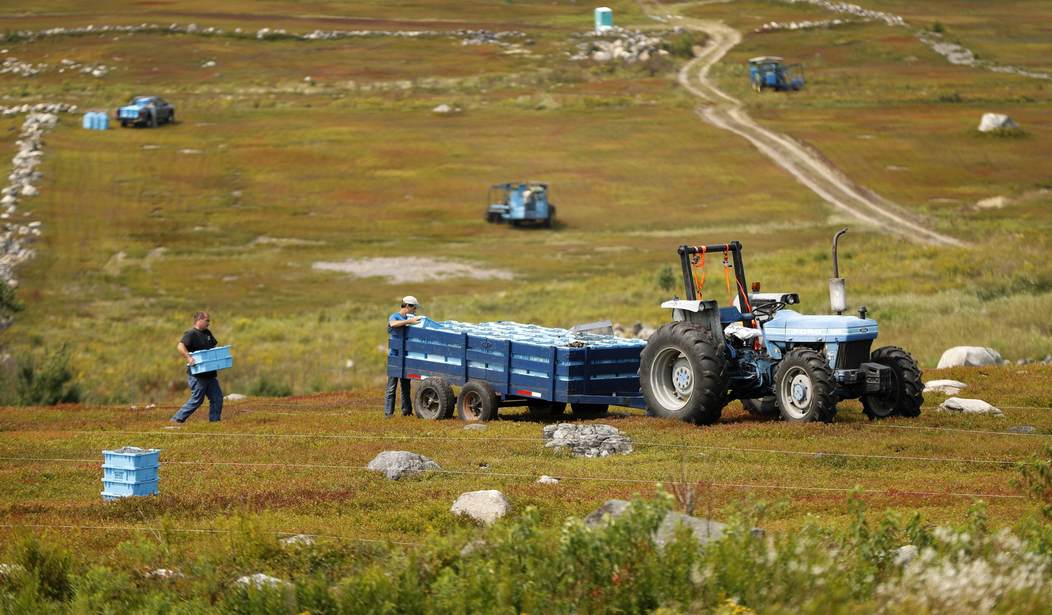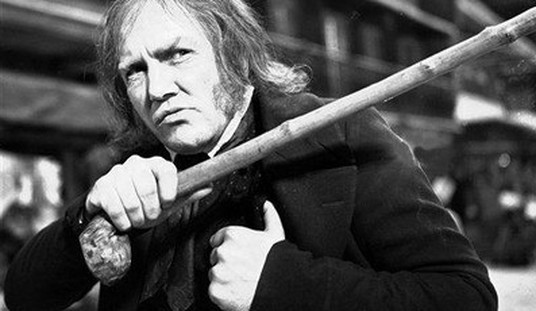The term "peasant" gets kicked around a lot. Sometimes, it's used as a euphemism; I've done it myself in observing how the coastal urban elites tend to view those of us who live out in the woods, far away from anything you might call a city. The word usually carries the connotation of an agricultural worker, which, after all, has been the primary occupation of peasants for centuries. But lately, in Canada and Europe, the peasants — the farmers — are not all right, and they are showing their displeasure, mostly with "green" policies that threaten their livelihoods. They are shutting down cities, spraying manure on government buildings, and setting a whole new meaning to "going to town."
In parliaments and the press, the latest peasant revolt has been met with raised eyebrows, hostility even. “This class has been spoilt by decades of copious public support,” declared La Stampa, Italy’s soi-disant “progressive” newspaper. The Frankfurter Allgemeine Zeitung, Germany’s premier conservative paper, was blunter: “Pampered farmers,” read its headline. Below, the protests were quaintly described as an “impertinence”. Europe’s politicians are likewise exasperated. Germany’s home secretary, Nancy Faeser, has pinned the blame on far-Right coup-makers, accusing them of seducing the unsuspecting subalterns.
In short, peasants appear to be not only obtuse but also obsolete in our modern world of slacktivism and semiconductors. So, this is an appropriate week for the publication of the 78-year-old social historian Patrick Joyce’s deeply sympathetic swansong to the world of his parents, Remembering Peasants.
But the focus of Mr. Joyce's work and the article linked here is not on the United States, but on Europe, where the agricultural classes are quite different.
As landowners, peasants are unmistakably conservatives. But they are not a rich people. As smallholders, they can be classed neither as oppressors nor as the oppressed. The peasant’s politics is a quaint admixture of Left and Right, then: the state, they feel, should be kept at arm’s length, but so, too, should the free market. Change of any kind is to be resisted — and it is here that the radicalism of the peasant comes in. “The peasant is a conservative, not a progressive,” writes Joyce. “Slow to move, but once roused, unstoppable, as in the peasant revolt, the jacquerie.”
Throughout history, peasant revolts have often succeeded because there were just so many peasants, and quantity, after all, has a quality all its own. And in writing about European peasants and the farmers who have taken their place today, Joyce is probably correct. It's an interesting little bit of history to study if you're interested in that sort of thing.
American farmers and rural folks, however, are quite a different kettle of fish. The United States has no centuries-old peasant tradition; since the Founding, Americans have resisted the entire class structure that so pervaded life in Europe since the Romans were in charge. As we have no nobles, we have no peasants.
That shouldn't be taken to mean that there are no people who fancy themselves nobles, of course. Coastal urban liberal elites seem too often to exhibit tenets of the class systems of the Old World, at least in their attitudes towards those of us who do toil and spin; one need look no further than the various "green" agendas, the constant harping about climate change, the insistence that we surrender our right to choose our lifestyle while the coastal elites maintain their beachfront mansions, to see just how that attitude manifests. They don't take rural dwellers seriously; advocacy of policies that scarcely affect them would affect us a great deal, but they aren't overly concerned. After all, most of us are probably conservatives and libertarians.
See Related: French Citizens: Four Flights in One Lifetime Is Enough for You, Peasant
You Will Eat Bugs, Own Nothing, Fear Everything, and Be Happy
I would normally rather attribute such advocacy of green policies to stupidity or incompetence rather than malevolence, but the advocates are too widespread, too well-coordinated, and too similar across national boundaries for them to be the imaginings of morons.
Several proponents of these wrecking-ball policies have noted outright that the goal is to remove capitalism as an economic system from the developed world, and they sure seem to be heading in that direction. But the results of these policies, global famine, would seem to fit the green agenda in other ways as well.
But here’s where I think the greens lose their way: The result of this kind of thinking won’t end the way they think it will, with the survivors being a bunch of urban lotus-eaters enjoying their vegan lunches with some nice imported tea. The folks who get through this will be the rural folks who can have a truck garden in their yard and can go out and shoot a deer (or moose) when they need protein. The peasants — the rural folks — may not be all right in the world of politics, but when politics fail, they will be the ones most likely left standing.
Whether European peasants or American farmers and rural dwellers, folks who live out in the woods and fields have one characteristic in common: We're tough. We are survivors. We are the strong men who make good times. And we won't stand for any nonsense about our lives out here in the woods. Underestimate us at your peril.
This seems appropriate.














